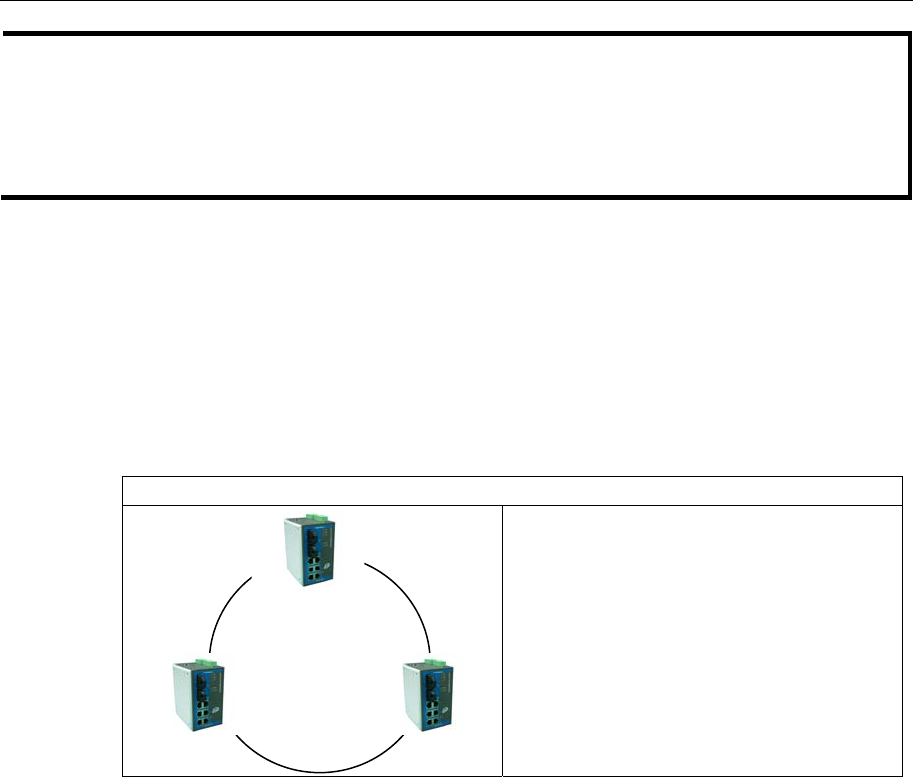
PT-7728 User’s Manual Featured Functions
3-18
NOTE
Most managed switches by Moxa support two proprietary Turbo Ring protocols:
y Turbo Ring refers to the original version of Moxa’s proprietary redundant ring protocol,
which has a recovery time of under 300 ms.
y Turbo Ring V2 refers to the new generation Turbo Ring, which has a recovery time of under
20 ms.
The Turbo Ring Concept
Moxa developed the proprietary Turbo Ring protocol to optimize communication redundancy and
achieve a faster recovery time on the network.
The Turbo Ring and Turbo Ring V2 protocols designate one switch as the master of the network,
and then automatically block packets from traveling through any of the network’s redundant loops.
In the event that one branch of the ring gets disconnected from the rest of the network, the protocol
automatically readjusts the ring so that the part of the network that was disconnected can
reestablish contact with the rest of the network.
Initial setup for Turbo Ring or Turbo Ring V2
1. For each switch in the ring, select any two
ports as the redundant ports.
2. Connect redundant ports on neighboring
switches to form the redundant ring.
The user does not need to manually assign the master with Turbo Ring or Turbo Ring V2. If no
switch is assigned as the master, the protocol automatically selects one of the switches to be the
master. The master is only used to identify which segment in the redundant ring acts as the backup
path. In the following subsections, we explain how the redundant path is selected for rings
configured for Turbo Ring and Turbo Ring V2.
Determining the Redundant Path for Turbo Ring
In this case, the redundant segment (i.e., the segment that will be blocked during normal operation)
is determined by the number of PT series Ethernet switches in the ring and by the location of the
master switch.


















